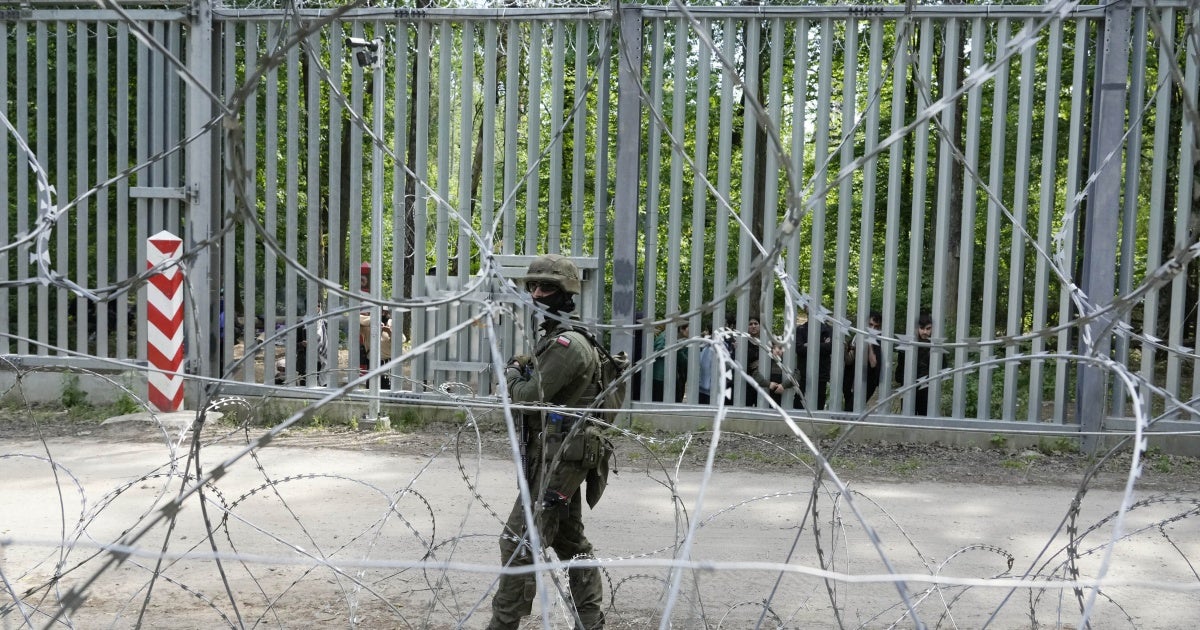Polish Border Guard Wounds Sudanese Migrant Amid Violent Clash at Belarus Border
In a troubling incident at the Belarusian-Polish border, a Polish border guard reportedly opened fire on a Sudanese migrant, injuring him during a confrontation that erupted amid escalating tensions among a group of migrants. The altercation occurred late Tuesday evening as a response to what authorities described as violent conduct from the migrants, highlighting the ongoing strife in the region where thousands of individuals have been attempting to cross into the European Union.
This incident marks a significant escalation in the already fraught situation at the border, where humanitarian concerns have been mounting over the treatment of migrants. Since the onset of the migrant crisis in 2021, Poland has seen an influx of individuals from war-torn regions, particularly from the Middle East and Africa, seeking refuge and a better life in Europe. The Polish government has taken a hardline stance on border security, often employing military personnel to bolster the border guard"s efforts against what they describe as organized attempts to breach the border. The recent shooting raises critical questions about the use of force in managing these complex humanitarian issues.
According to reports from Polish state media, the confrontation began when a group of migrants allegedly exhibited aggressive behavior, prompting the border guard"s response. Eyewitness accounts suggest that the situation escalated rapidly, with the guard firing a warning shot before injuring the migrant. While the specific details surrounding the incident remain unclear, the Polish Border Guard has stated that they are conducting an internal investigation. This event comes on the heels of similar situations reported in other regions, where border enforcement has led to violent confrontations between law enforcement and migrants.

Image for Polish Border Guard Wounds Sudanese Migrant Amid Violent Clash at Belarus Border
Experts have expressed concern over the implications of such incidents for both migrant safety and border policy. Human rights advocates argue that the use of live ammunition against migrants, particularly those fleeing violence and persecution, is a violation of international humanitarian laws. "The right to seek asylum is a fundamental human right," said Maria Kowalska, a migration policy analyst. "When states resort to violence to deter migrants, they undermine the very principles of protection that international law seeks to uphold." This incident could provoke widespread outrage and calls for reform in Poland"s border policies, especially as similar situations continue to unfold across Europe, including the recent developments in the Israeli Knesset"s controversial annexation vote, which has heightened tensions in that region as well.
The consequences of this shooting could be far-reaching. Polish authorities may face increased scrutiny both domestically and internationally regarding their treatment of migrants. As European Union nations grapple with the complexities of migration and border control, Poland"s actions may provoke a reassessment of the EU"s collective approach to humanitarian crises. Additionally, the incident could lead to protests from human rights organizations, further igniting the ongoing debate over border security versus the humane treatment of migrants. As previously reported, the situation at the border has been a flashpoint for tensions between Poland and the EU, with calls for more humane policies gaining traction among advocacy groups.
Looking ahead, the Polish government will need to navigate the delicate balance between national security and humanitarian obligations. As public sentiment shifts and international pressure mounts, there may be a push for policy reforms that prioritize migrant safety while still addressing legitimate security concerns. The future of Poland’s border policy hangs in the balance, and how the government responds to this incident may set a precedent for handling similar crises in the future. The international community will be watching closely, as the implications of this shooting extend beyond Poland’s borders, reflecting broader trends in global migration and human rights.

![[Video] Federal officers deploy sting balls and flash grenades at Whipple Building](/_next/image?url=%2Fapi%2Fimage%2Fthumbnails%2Fthumbnail-1768340555229-vhfcc-thumbnail.jpg&w=3840&q=75)
![[Video] Crowd-control weapons used in Minneapolis as anti-ICE protesters attack police vehicle](/_next/image?url=%2Fapi%2Fimage%2Fthumbnails%2Fthumbnail-1768336302231-akxf7s-thumbnail.jpg&w=3840&q=75)

![[Video] Protests erupt in Minneapolis after ICE detains teenager, multiple arrests made](/_next/image?url=%2Fapi%2Fimage%2Fthumbnails%2Fthumbnail-1768331835371-z9ylqg-thumbnail.jpg&w=3840&q=75)


![[Video] Gunfire between Iraqi security forces and Sadr militias in Baghdad](/_next/image?url=%2Fapi%2Fimage%2Fthumbnails%2Fthumbnail-1768343508874-4redb-thumbnail.jpg&w=3840&q=75)
